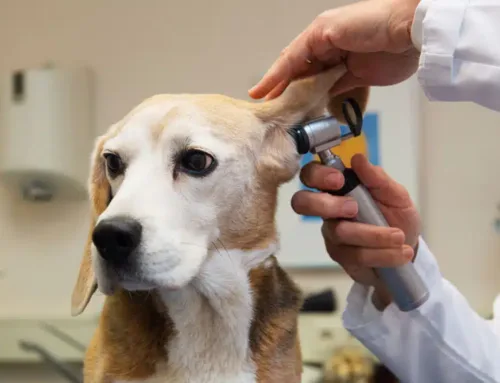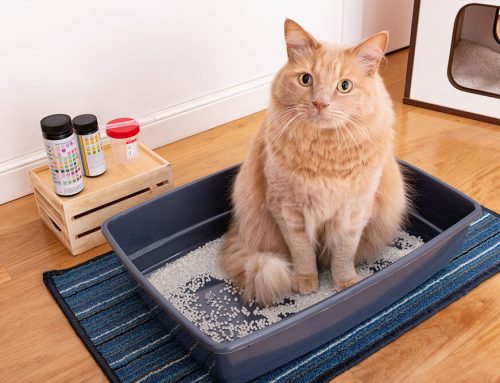Goal setting is a fundamental way people move their lives forward, and New Year’s resolutions can help many people do just that. Coming up with new, attainable goals for yourself each year can be challenging, so this year, set a resolution for your pet. Resolutions focusing on your pet’s health, wellness, and wellbeing can help improve their life, and also strengthen the bond you share with your furry pal. Our Fairfax Veterinary Clinic team focuses on helping pets live their best lives, so read our New Year’s pet resolution ideas to enhance your furry friend’s health during the next 12 months.
#1: Schedule your pet’s wellness examination
Accomplishing this goal should be easy, because your pet needs to visit your veterinarian only once or twice per year. Annual wellness visits for adult pets, or biannual visits for senior pets, are a great way to detect illness or disease while the condition is highly treatable. Dental disease, osteoarthritis, or heart changes can sneak up slowly without your pet exhibiting noticeable signs, but your veterinarian can detect these problems during a wellness examination.
#2: Update your pet’s vaccinations
If you chose to commit to your pet’s wellness this year, updating their vaccinations is a good way to achieve that goal. All pets’ core (i.e., required) vaccines are usually updated every three years, but non-core vaccines (i.e., lifestyle-based) must be repeated each year to remain effective. To ensure your pet can maintain their lifestyle with minimal risks, prioritize their preventive health this year.
#3: Be consistent with your pet’s parasite control
The administration of your pet’s parasite preventive requires a monthly commitment, and you can easily remember to do this by setting a reminder alert on your phone. Parasites, including fleas, ticks, heartworms, and intestinal worms, can cause your pet to contract a deadly disease, but these illnesses are easily preventable. Ask your veterinarian to recommend the best products for your pet, and commit to using them regularly.
#4: Set aside time for routine pet training
Your pet’s training is not a one-and-done process and should continue throughout their lifetime. Regular training sessions can reinforce your pet’s knowledge and skills, help them learn new skills, provide an engaging indoor activity, and keep your furry pal’s brain sharp as they age. Commit to daily 10- to 15-minute training sessions, or aim for 3 days per week. Ask a professional trainer or your veterinarian to recommend the best training techniques, such as clicker training.
#5: Participate in a dog sport or activity
High-energy dogs or those who become easily bored can benefit from participation in a dog-centered activity that keeps their brains and bodies active. In addition, these activities help your dog burn excess energy, which if not released, can lead to behavior problems. Agility is always a great choice, but your dog may enjoy a different sport, so keep an open mind, and do some research. For example, if your dog is obsessed with sniffing when you take a walk together, they may prefer nosework, or if they can seek and destroy rodents like a missile system, introduce them to barn hunt.
#6: Establish your pet’s walking routine
If your pet is not the sporting type or you don’t have the time to become involved in an organized activity, walking regularly is always a great alternative. When you are outside your own home and yard, your pet experiences new sights, smells, and sounds that mentally engage them, and all exercise enhances overall health and weight maintenance.
#7: Encourage daily play and engagement for your indoor cat
Indoor cats can become bored or frustrated with their limited environment, and can often develop behavior problems or become lazy and complacent. All indoor cats need daily enrichment that encourages exercise and provides an outlet that satisfies their natural hunting and stalking behaviors. Daily play sessions, food puzzles, or treat scavenger hunts can keep your cat active and happy, helping prevent stress-related behavioral problems, such as inappropriate urination, and ailments such as upper respiratory infections.
#8: Brush your pet’s teeth daily

Nearly all pets develop dental disease during their first few years, and this condition can progress quickly over time, causing them pain, bad breath, and tooth loss. Daily toothbrushing is the best way to prevent or slow this disease, along with regular professional dental evaluations and cleanings at your veterinarian’s office. This year, make toothbrushing a regular at-home habit, and ask your veterinarian about alternative dental health products.
Our Fairfax Veterinary Clinic team can help you determine the resolution that will be most beneficial to your pet, or recommend a specific goal you can help your furry pal reach during the coming year. To help your pet live their best life in 2023, schedule their wellness visit with our Fairfax Veterinary Clinic team.








Leave A Comment